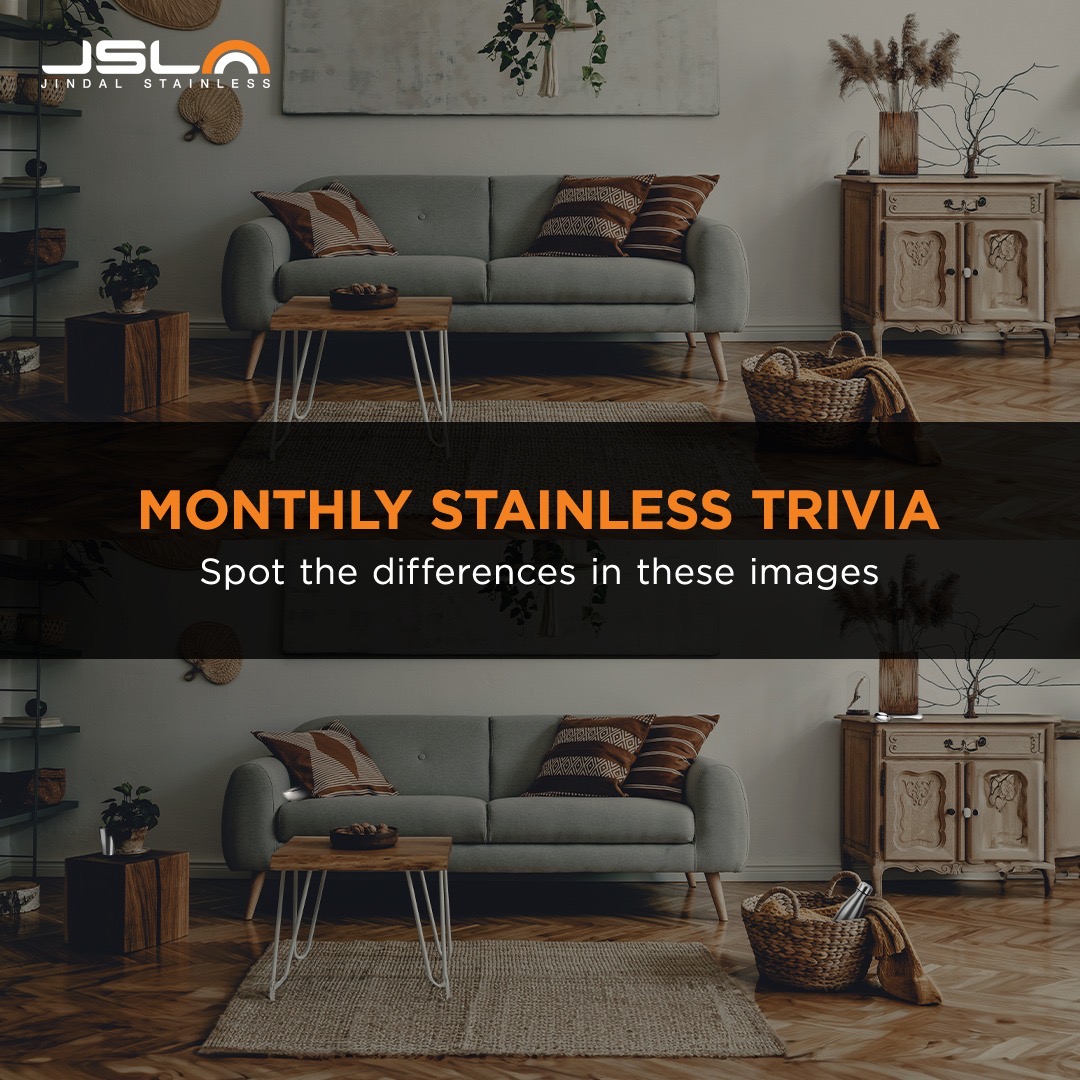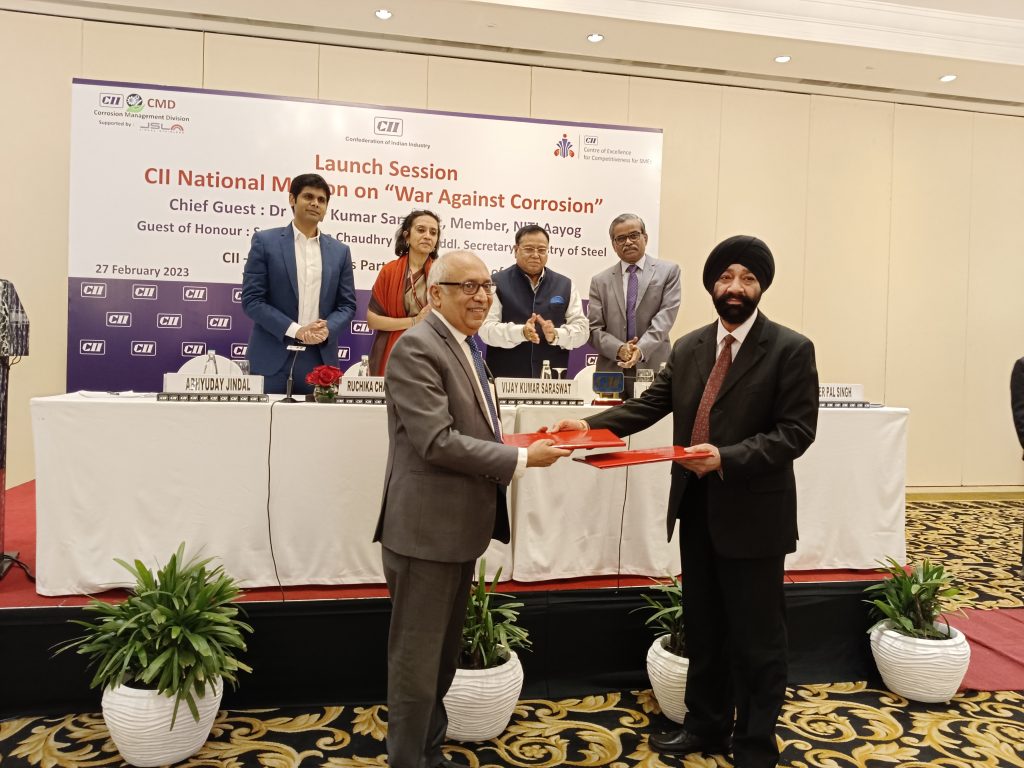
Monthly
Stainless Trivia
Fill in your answer below
MoU will help scale up the corrosion movement in India and improve the life expectancy, safety, and reliability of public infrastructure
New Delhi, 27th February, 2023: In a bid to eradicate corrosion and create awareness about the effects of corrosion, Jindal Stainless today signed a Memorandum of Understanding (MoU) with the Confederation of India Industry (CII) around CII’s National Mission on Corrosion Management. The MoU was mutually signed by Director, Jindal Stainless, Mr Vijay Sharma and Executive Director, Confederation of Indian Industry & Head, CII – Centre of Excellence for Competitiveness, Mr Pikender Pal Singh in the presence of NITI Aayog & Chancellor, Jawaharlal Nehru University, Dr. V K Saraswat; Additional Secretary, Ministry of Steel, Govt of India, Ms Ruchika Govil; MD, Jindal Stainless, Mr Abhyuday Jindal, and Chairman, CII-Corrosion Management Committee, Dr Kamachi Mudali. Towards this MoU, Jindal Stainless has set aside an initial corpus of INR 2 crore plus.

The primary focus of this MoU is training, capacity building, and skill development with support from government bodies and educational institutes; consulting and advisory, which will include technology gap assessment; projects and research with survey and analysis of infrastructure, and lastly stakeholder engagement to create awareness on the issue.
Citing examples from his DRDO & other previous experiences, Dr V K Saraswat said, “The cost of corrosion is prohibitive in all sectors. We need high fidelity models in estimating corrosion in real time environments so that we can move from regressive to progressive ways of corrosion estimation.”
Expressing her happiness over the mission of war on corrosion, Ms Ruchika Govil said, “I am so happy that we’ve come together to solve problems of deterioration caused by corrosion. The Ministry of Steel feels it’s imperative to be involved in this discussion against corrosion because when contamination and leakages happen, it is the image of steel that suffers.”
Applauding this move, MD, Jindal Stainless, Mr Abhyuday Jindal, said, “Corrosion affects all walks of our life; from the safety of infrastructure and loss of capital investment to contamination of ingestible and pollution precipitation. As per estimates, every year, corrosion costs India about 4% of its GDP. The maintenance and replacement of assets affected by corrosion are major deterrents to the growth of our economy. Since its inception, Jindal Stainless has been working towards this cause in various capacities, from sensitizing our stakeholders, fabricators, and other industries, to enhancing awareness across various legs of the government and key decision-makers. This partnership with CII is a natural alliance towards our core objective.”
Talking about the massive extent of losses caused by corrosion, Mr Kamachi Mudali said, “By applying corrosion saving measures we can save a minimum of 25% of corrosion-related losses, which in India amounts to Rs 3 lakh crore.”
Some of the initiatives under this MoU include suggesting and submitting policy improvements specific to stainless steel use and its applications, scaling up corrosion management activities in India and abroad, promoting technology to manage corrosion, providing short-term and long-term courses for industry professionals for right material selection, conducting workshops, organizing Annual Corrosion Summit, identifying world’s best practices in corrosion management, suggesting potential solutions to minimize corrosion-related losses, etc.
CII’s Corrosion Management Division (CMD) will work as a nodal agency to promote corrosion management practices in the country. All the initiatives under the MoU would be implemented through CMD, which will be further upgraded in its reach with an aim to set up a CII Centre of Excellence on Corrosion Management after three years.
Jindal Stainless will provide financial aid, guidance and leadership support through Advisory Council, CMD, and representation in core groups. The promotion of anti-corrosion material will further increase the safety and reliability of public and private infrastructure. Through academic collaborations, both parties will develop capacity-building courses and propel corrosion-related R&D. It is estimated that 25-30% of corrosion could be prevented by following these measures and the life of equipment can be extended up to 250%.